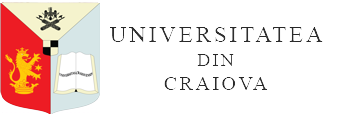CONTRIBUTIONS REGARDING THE INFLUENCE OF THE TEMPERATE-CONTINENTAL CLIMATE ON THE PERFORMANCE OF NEW WHEAT LINES
Abstract
The genetic diversity of wheat is high and continues to grow, which can contribute to the new challenges imposed by climate change. National Agricultural Research and Development Institute, Fundulea-Romania, using diverse genetic resources and biotechnological methods obtained a series of DH mutant/recombinant lines that can be used in the next years in many cropping zones because as a result of experimentation proved to adapt easily in moderate temperate continental conditions from south Romania. To evaluate the effect of this climate on their agronomic performance, 13 lines and the two forms from which they were extracted, were sowed in ARDS Caracal where average long-term climatic data indicate an increase in temperature with almost 2.500C and also the frequency of periods with drought and high temperatures, as well as extreme weather events. In this context, the new lines represent a superior genetic material that can be made available to farmers and has proven capable of giving high, stable, and quality yields corresponding to market requirements, under the increasingly frequent conditions of some higher temperatures and fluctuations in the pluviometric regime.


